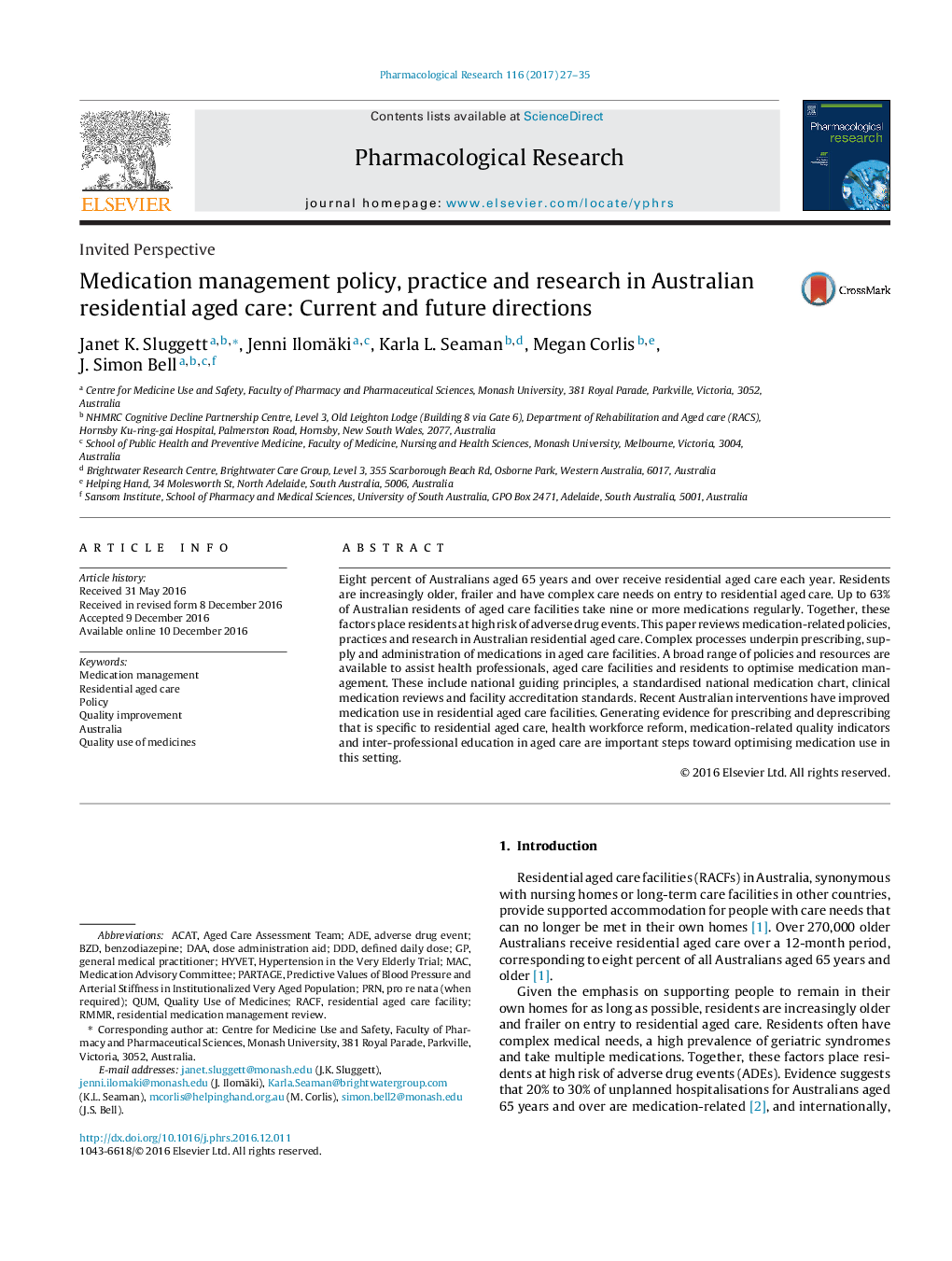| Article ID | Journal | Published Year | Pages | File Type |
|---|---|---|---|---|
| 5557370 | Pharmacological Research | 2017 | 9 Pages |
Eight percent of Australians aged 65 years and over receive residential aged care each year. Residents are increasingly older, frailer and have complex care needs on entry to residential aged care. Up to 63% of Australian residents of aged care facilities take nine or more medications regularly. Together, these factors place residents at high risk of adverse drug events. This paper reviews medication-related policies, practices and research in Australian residential aged care. Complex processes underpin prescribing, supply and administration of medications in aged care facilities. A broad range of policies and resources are available to assist health professionals, aged care facilities and residents to optimise medication management. These include national guiding principles, a standardised national medication chart, clinical medication reviews and facility accreditation standards. Recent Australian interventions have improved medication use in residential aged care facilities. Generating evidence for prescribing and deprescribing that is specific to residential aged care, health workforce reform, medication-related quality indicators and inter-professional education in aged care are important steps toward optimising medication use in this setting.
Graphical abstractThe medication management cycle [22].Download high-res image (158KB)Download full-size image
